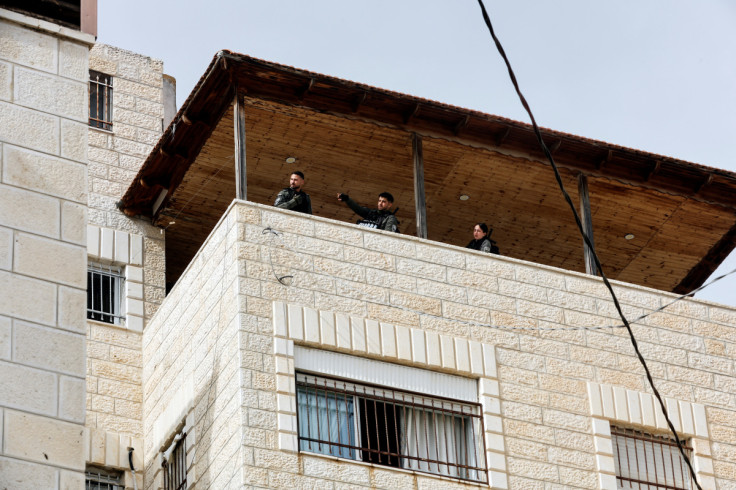Israel Seals Home Of Palestinian Synagogue Shooter As Netanyahu Vows Crackdown

Israeli police sealed off the Jerusalem family home of a Palestinian gunman two days after he killed seven people outside a synagogue, as fears grew of further escalation in the deadliest unrest for years in Jerusalem and the West Bank.
Prime Minister Benjamin Netanyahu announced plans on Sunday to make it easier for Israelis to carry guns after the synagogue attack, the deadliest against Jews in the Jerusalem area since 2008. It came a day after the deadliest Israeli military raid for years in the West Bank city of Jenin.
Since then, a 13-year-old Palestinian boy opened fire on a group of Israeli passers-by in Jerusalem on Saturday, wounding two before one of the civilians shot and wounded him. On Sunday, residents of a Palestinian village outside Ramallah in the West Bank said a group from a nearby Israeli settlement had burned one house and smashed doors and windows of another.
Netanyahu said making it easier for Israelis to get permits to carry guns would reduce violence: "We have seen, time and again ... that heroic, armed and trained civilians save lives."
Further steps would be taken to strengthen settlements in the occupied West Bank, and to revoke residency rights from relatives of Palestinians who carry out attacks. Israel was not seeking escalation, but would provide a "powerful, swift and precise" response to Friday's attack, he said.
U.S. Secretary of State Antony Blinken is due in Jerusalem and the West Bank this week for his first visit since Netanyahu returned to power at the helm of a coalition that includes Israel's far right. Blinken' visit now looks set to be dominated by efforts to prevent the violence spinning out of control.
A Palestinian man died on Sunday of wounds from Thursday's raid in Jenin, raising the death toll to ten including at least two civilians from that raid. At last 31 Palestinians have been killed so far this month in West Bank clashes with Israeli security forces.
Last year was the deadliest in more than a decade for West Bank Palestinian civilians and militants, with violence steadily escalating following a spate of lethal Palestinian attacks in Israel.
CHALLENGE
Friday's synagogue shooting presents a challenge to Netanyahu, who returned to power in December at the head of the most right-wing government in Israeli history, promising to make Israelis safer after Palestinian street attacks last year.
Sworn in a month ago, Netanyahu's government has prioritised settlement building on lands the Palestinians seek for a state, though it has not yet taken major steps on the ground. Most world powers consider as illegal Israel's settlements in the West Bank and East Jerusalem, land it captured in the 1967 war.
Awad Abu Samra, whose brother's house in the village of Turmus Ayya was damaged on Sunday, said Israeli settlers were now attacking local farmers "almost every week or so".
"They attack anything that belongs to the Palestinians."
The Israeli military said on Saturday it was sending additional troops into the West Bank. Still, there was no immediate sign Israel was preparing for a large-scale military response to the shooting.
Palestinian President Mahmoud Abbas has not remarked on Friday's attack and on Saturday blamed Israel for the violence. The gunman had apparently acted alone and was shot dead by officers as he tried to flee the scene, police said.
(Writing by Maayan Lubell; Editing by William Mallard and Peter Graff)
© Copyright Thomson Reuters {{Year}}. All rights reserved.




















